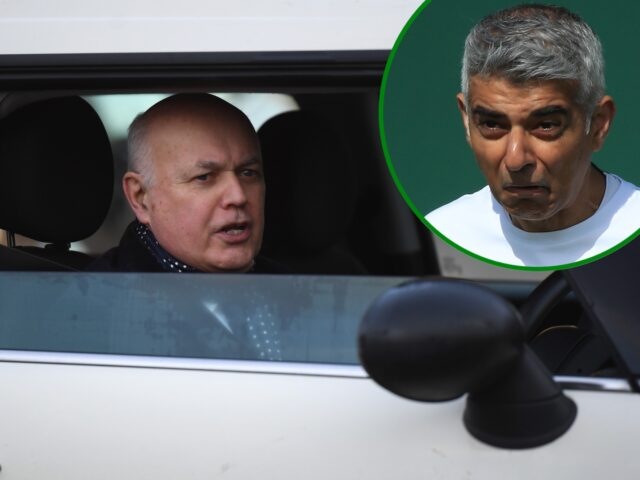The former head of the Conservative Party has backed the actions of civil disobedience taken against London Mayor Sadiq Khan’s green car tax spy camera network.
Upon the expansion of the unpopular Ultra Low Emissions Zone (ULEZ) this week, Sir Iain Duncan Smith, the leader of the Tory party between 2001 and 2003, has thrown his support behind the civil disobedience by the group dubbed the “blade runners” and other members of the public against the licence plate-reading surveillance cameras installed throughout the capital to enforce the tax on driving in London.
“A lot of people in my constituency have been cementing up the cameras or putting plastic bags over them,” Sir Iain said according to the Daily Mail.
“I am happy for them to do it because they are facing an imposition that no-one wants and they have been lied to about it.
“The actions you are seeing show how angry people are at what is being imposed on them. Sadiq Khan has gerrymandered all the information – people have had enough.”
The former Conservative leader went on to say on social media that the expansion of the ULEZ scheme, which will now tax motorists between £12.50 to £27.50 per day if they drive anywhere in London, is merely a “fund raiser for this incompetent Mayor” based upon “claims about air quality which cannot be substantiated.”
The Mayor’s office has claimed that the imposition of ULEZ taxes in Central London reduced nitrogen dioxide pollution by 29 per cent. However, this claim was based upon an academic from an Imperial College Environmental Research Group that reportedly received £800,000 in funding from Khan’s City Hall and merely analysed claims from the Mayor’s office.
A more thorough study from the same college found that a slight three per cent nitrogen dioxide reduction could be attributed to ULEZ and that it otherwise failed to meaningfully reduce particulate pollution in the capital, saying: “The ULEZ on its own is not an effective strategy in the sense that the marginal causal effects were small.”
Sadiq Khan’s climate deputy, Shirley Rodrigues was also reported to have attempted to pressure a professor at Imperial to dispute the findings of his own school in order to control the narrative in the media.
The attacks on the climate agenda enforcing cameras have escalated to such an extent that in South East London some 90 per cent of new cameras were either destroyed or disabled before the ULEZ expansion could come into place.
The civil disobedience against driving restrictions and increased surveillance has come at a steep cost for local governments throughout the UK, with at least £850,000 in damage being recorded since 2020 on cameras, as well as other so-called “Low Traffic Neighbourhood” measures such as bollards to prevent cars from driving in certain areas.

COMMENTS
Please let us know if you're having issues with commenting.